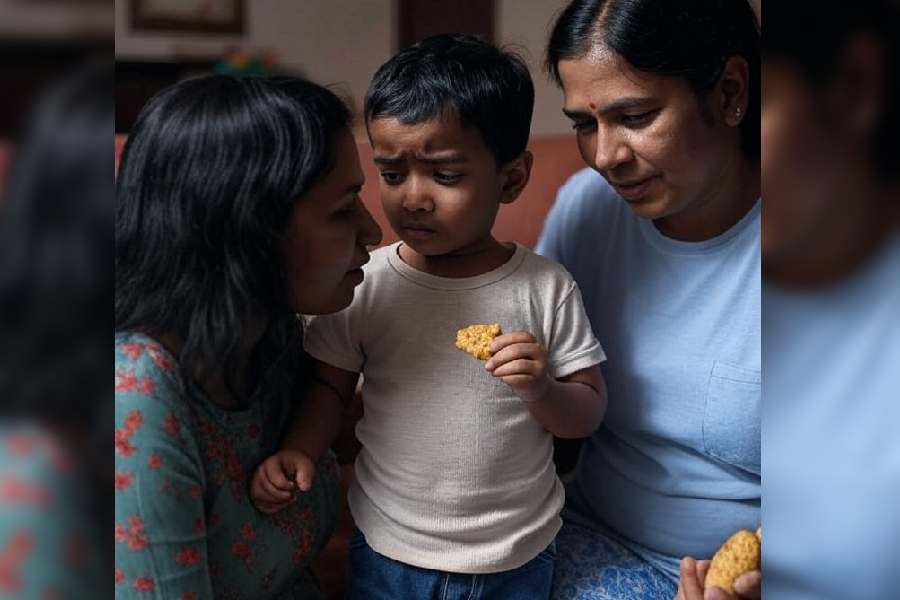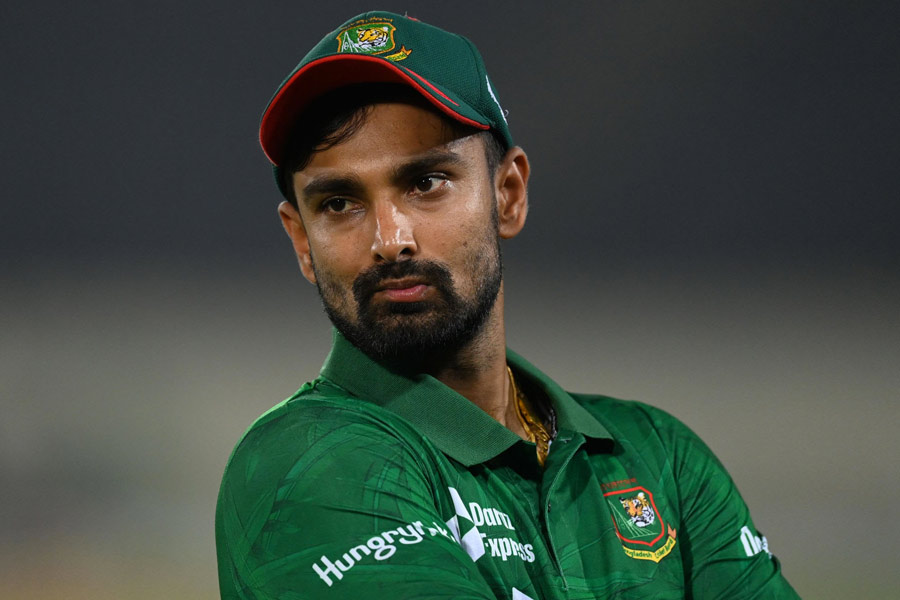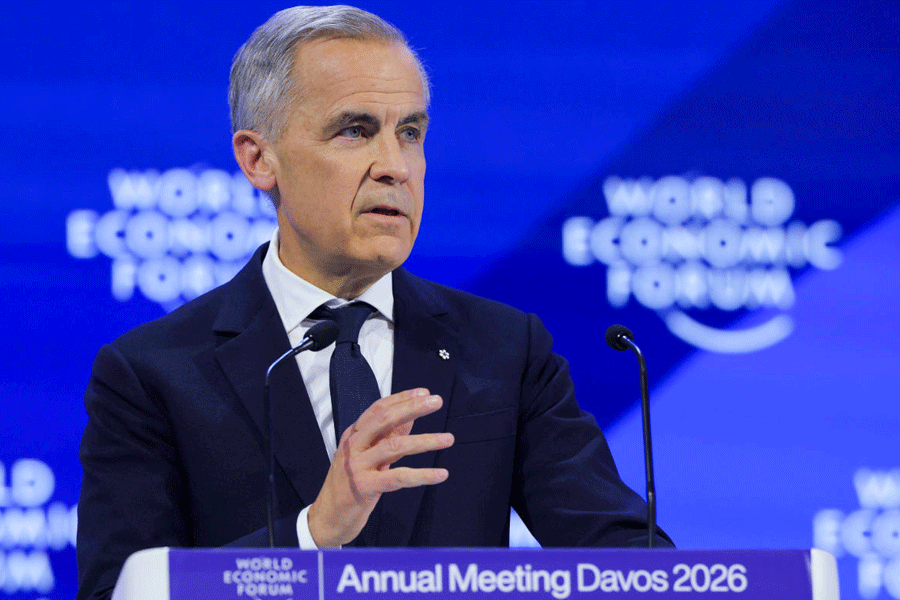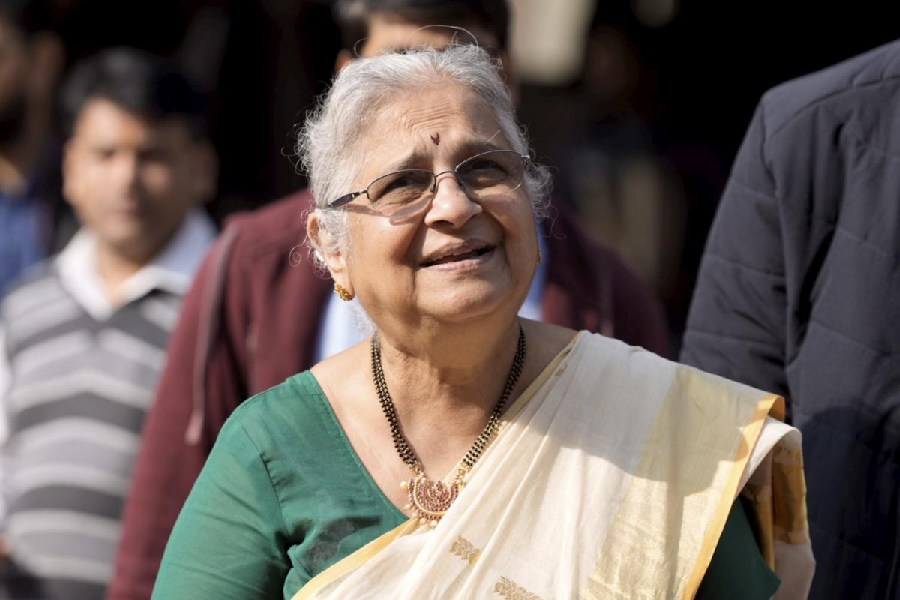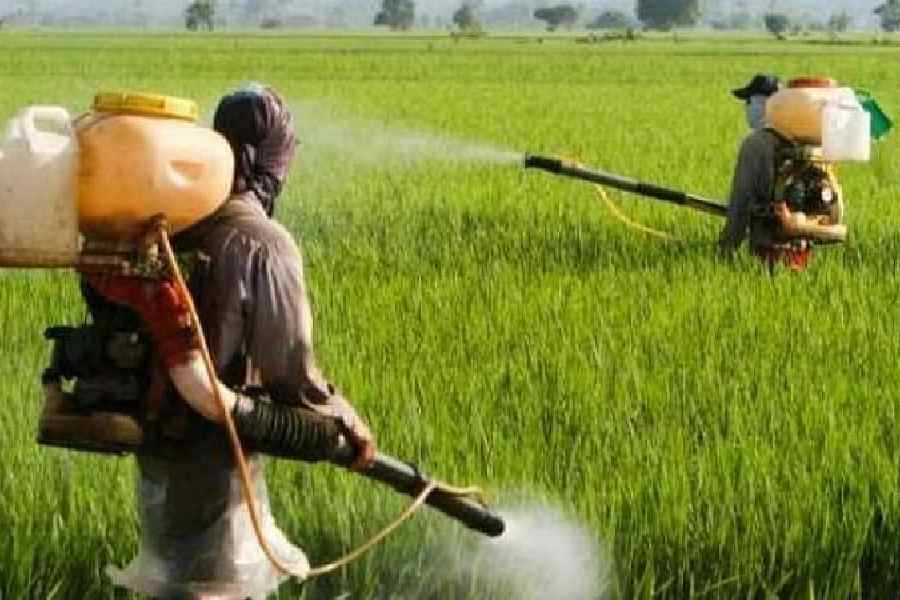Once considered an adult ailment, gallstones are increasingly affecting children across India, prompting paediatricians to call for greater awareness and preventive care.
In a surprising shift in pediatric health trends, hospitals and clinics across India are reporting a steady rise in cases of gallstones among children, experts said.
Traditionally viewed as a condition affecting middle-aged adults, gallstones are now being diagnosed in children as young as six, raising concerns among medical professionals and public health experts.
Gallstones are solid deposits that form in the gallbladder, often composed of cholesterol or bilirubin. While many cases remain asymptomatic, they can cause intense abdominal pain, nausea, vomiting, and digestive distress when they obstruct bile flow.
"We're seeing a clear increase in pediatric gallstone cases, especially in urban centres," said Dr Shandip Kumar Sinha, the director of pediatric surgery and pediatric urology at Mednata-The Medicity in Gurugram.
The causes are multifactorial, ranging from obesity and poor dietary habits to genetic predisposition and certain blood disorders like thalassemia, he said.
According to Dr Sinha, the condition is often overlooked due to its vague symptoms. "Children may complain of stomach aches or refuse food, and parents assume it's a routine digestive issue. But persistent or recurring pain in the upper abdomen should never be ignored." A recent survey conducted by the Indian Academy of Paediatrics (IAP) across five metropolitan cities found that nearly one in 200 children admitted for abdominal pain had gallstones. The prevalence was notably higher among children with sedentary lifestyles and diets high in processed foods and saturated fats.
Dr Raman Kumar, Chairman, Academy of Family Physicians of India, emphasised the importance of timely diagnosis.
"Ultrasound is a safe and effective tool for detecting gallstones. In many cases, we can manage the condition with medication and dietary changes, especially in asymptomatic children. But when complications such as gallbladder inflammation or pancreatitis arise, surgery may be necessary," the doctor said.
In symptomatic cases and in children with complications, laparoscopic cholecystectomy is the standard procedure. However, complexities arise in asymptomatic children, where an ultrasound has been done for non-specific symptoms and gallstones are diagnosed.
According to Dr Sinha, watchful waiting or surgery are the options for asymptomatic children.
"Parents need to understand the risk of complications arising during this waiting period, and informed decisions based on mutual understanding need to be taken. Many parents do not want to take the risk of complications such as jaundice, pancreatitis and instead opt for early surgery," he said.
Dr Sinha added that laparoscopic cholecystectomy, a minimally invasive procedure to remove the gallbladder, is safe for children and often results in quick recovery.
Paediatricians are now advocating for greater awareness among parents, schools, and community health workers. Key preventive measures include encouraging a balanced diet rich in fibre, fruits, and vegetables and limiting intake of junk food, sugary beverages, and saturated fats.
They are also promoting regular physical activity and reducing screen time and routine health check-ups, especially for children with a family history of gallstones or metabolic disorders "This is a wake-up call for all of us," said Dr Sinha.
"Children's health is shaped not just by genetics but by the environment we create for them. It's time we take a closer look at what they eat, how active they are, and how quickly we respond to their health complaints," he added.
Except for the headline, this story has not been edited by The Telegraph Online staff and has been published from a syndicated feed.

